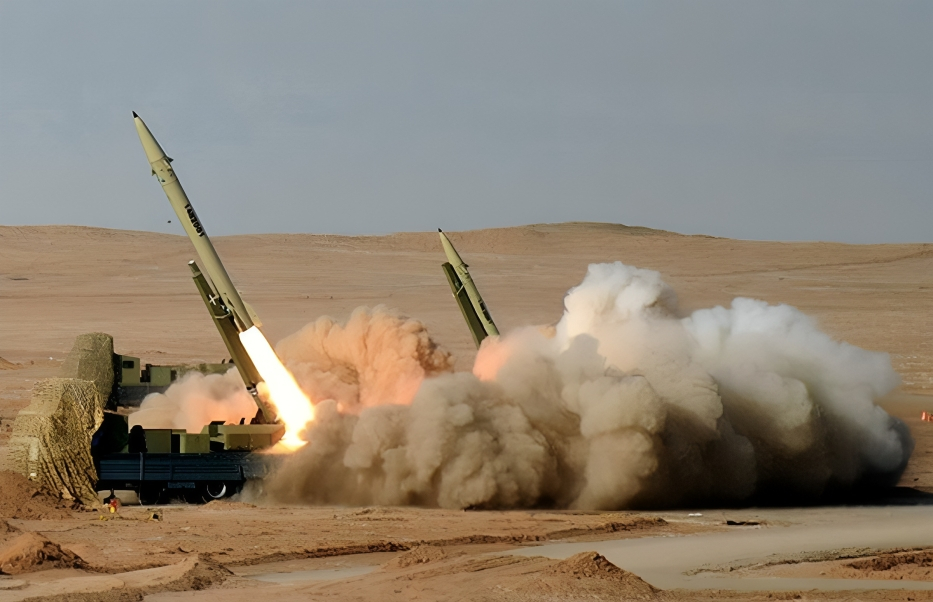Pakistan’s Foreign Ministry has warned Iran of “serious consequences” over a cross-border attack that killed two children in its southwestern Balochistan province.
“Pakistan strongly condemns the unprovoked violation of its airspace by Iran and the strike inside Pakistani territory which resulted in the death of two innocent children while injuring three girls. This violation of Pakistan’s sovereignty is completely unacceptable and can have serious consequences,” the ministry said in a statement on the night of January 16.
In addition, the Iranian Charge d’affaires has been called to the Pakistani foreign ministry to convey the “strongest condemnation of this blatant violation.”
On January 16, Iran reportedly launched a missile and drone attack targeting “two key strongholds” of the extremist militant group Jaish al-Adl in the border town of Panjgur in Pakistan’s Balochistan province.
“The focal point of this operation was the region known as Kouh-Sabz in the Balochistan province of Pakistan, recognized as one of the largest hubs for the Jaish al-Adl militants,” Iran’s Tasnim news agency said.
Jaish al-Adl (“Army of Justice”), known in Iran as Jaish al-Dhulm, is a militant group founded in 2012, which largely operates in southeastern Iran and across the border in Pakistan. It was created by members of Jundallah, a militant group that had been weakened following Iran’s capture and execution of its leader, Abdolmalek Rigi, in 2010.
For over twenty years, Baluch nationalists have been engaged in a prolonged, low-intensity insurgency within Iran's southeastern province of Sistan-Baluchestan, evolving into a pursuit of independence.
Iran has long suspected Pakistan of providing a haven for the insurgents and fomenting instability on Iran’s south-eastern border, possibly in coordination with Saudi Arabia, Tehran’s arch-rival.
On December 15, 2023, Jaish al-Adl took credit for an assault on a police station in Rask city, located in Iran's southeastern province of Sistan-Baluchestan, resulting in the tragic loss of at least 11 police officers’ lives. In response to similar attacks, Iran had warned of potential cross-border raids into Pakistan.
Meanwhile, the recent incident comes after Iran conducted airstrikes on Iraq and Syria on January 15, resulting in the death of at least four civilians and injuring 17 others. Iran’s Islamic Revolution Guards Corps reported launching a sequence of ballistic missiles, targeting bases of individuals they labeled as “terrorists” in Iraq and Syria, linking them to the “terrorist” attacks that occurred in Iran’s Kerman on January 3.
The Islamic State militant group (ISIS) claimed responsibility for this dual suicide bombing where at least 93 people were killed and 280 were injured during an event to mark the fourth anniversary of the US killing of top Iranian commander Qassem Soleimani. Iranian authorities say they have arrested 32 individuals in connection to the deadly attack.
Iran’s recent attack on Pakistan coincided with a meeting between Iranian Foreign Minister Hossein Amir-Abdollahian and Anwaar ul Haq Kakar, the caretaker Prime Minister of Pakistan, during the World Economic Forum in Davos, Switzerland. During the meeting, they discussed the need to establish direct flights between Tehran and Islamabad, as well as other issues of bilateral relations.
On January 15, Iran’s special envoy on Afghanistan Hassan Kazmi Qomi and Pakistan’s Caretaker Foreign Minister Jalil Abbas shared concerns over the presence of militant groups in Afghanistan, and urged the need for close coordination between the two countries to persuade Kabul on the issue.
The visit came amid strained ties between Pakistan and Afghanistan over Kabul’s alleged lack of action on cross-border militant attacks and amid concerns over the presence of militant groups on Afghan soil posing a security threat.







 President Ilham Aliyev shed light on the evolving contours of the peace process with Armenia during an international conference in Baku this week. ...
President Ilham Aliyev shed light on the evolving contours of the peace process with Armenia during an international conference in Baku this week. ...
 Azerbaijan and Armenia started the process of demarcation of their border on Tuesday, with the installation of the first border markers based on ge...
Azerbaijan and Armenia started the process of demarcation of their border on Tuesday, with the installation of the first border markers based on ge...
 Armenian sappers commenced on Monday mine-clearance operations in the territories adjacent to the Saint Mary Church in village of Voskepar (Armenia...
Armenian sappers commenced on Monday mine-clearance operations in the territories adjacent to the Saint Mary Church in village of Voskepar (Armenia...
 As the conflict between Ukraine and Russia escalates, the strategic importance of Kharkiv, Ukraine's second-largest city, has come sharply into focus.
As the conflict between Ukraine and Russia escalates, the strategic importance of Kharkiv, Ukraine's second-largest city, has come sharply into focus.
 President Aliyev emphasized the critical role of the North-South Transport Corridor in fostering transport cooperation between Azerbaijan and Russi...
President Aliyev emphasized the critical role of the North-South Transport Corridor in fostering transport cooperation between Azerbaijan and Russi...



